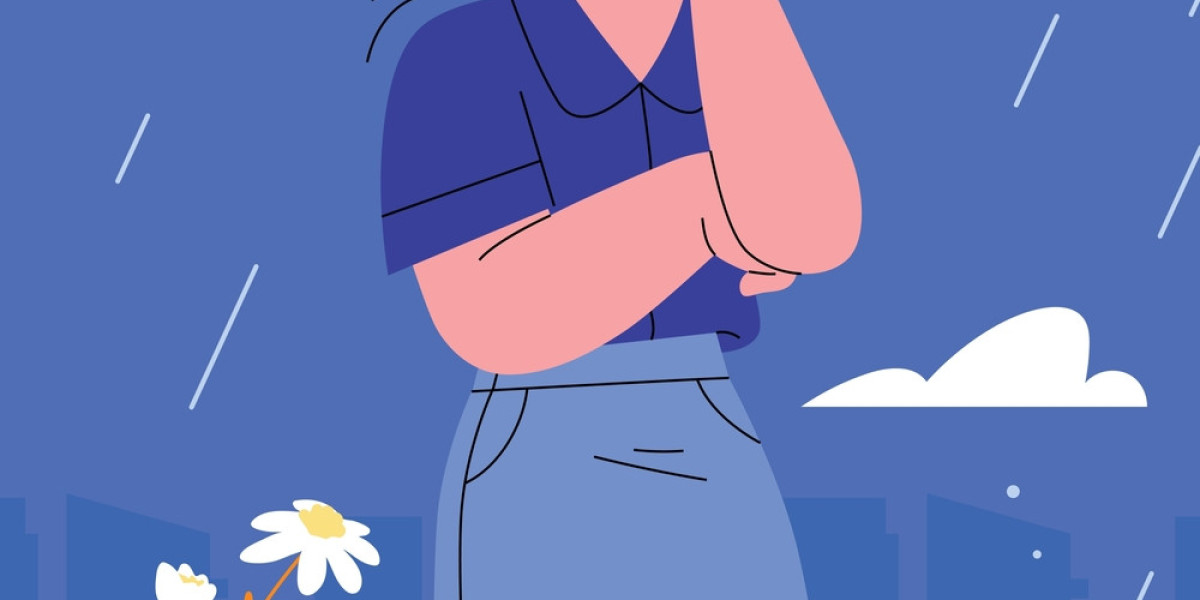Major Depressive Disorder (MDD) in young adults is more common than many might think, yet it often goes unnoticed. College life, early career struggles, social pressures, and the transition to adulthood can weigh heavily on mental health. Recognizing the early signs of depression in young adults is crucial for timely intervention. This blog will walk you through the early signs of MDD in young adults and guide you in seeking help.
What is MDD and Why Are Young Adults Vulnerable?
Major Depressive Disorder (MDD) is a mental health condition marked by persistent sadness, loss of interest in daily activities, and a variety of emotional and physical issues that interfere with everyday functioning. While anyone can develop MDD, young adults face specific challenges that increase their vulnerability.
Why Are Young Adults at More Risk?
Young adulthood is a period filled with change. Transitioning from adolescence to adulthood brings newfound responsibilities: education, career decisions, relationships, and personal growth. These transitions often lead to uncertainty, stress, and identity struggles, all of which are potential triggers for depression.
Other factors include:
Social pressure: The need to "fit in" or perform can feel overwhelming.
Academic or job stress: Navigating college life or the early stages of a career can be intense.
Hormonal changes: Biological factors like fluctuating hormones can contribute to mood changes.
Family dynamics: Family problems or estrangement can create emotional turmoil.
Financial independence: Managing finances and self-sufficiency can trigger anxiety and feelings of inadequacy.
These factors are part of why Major Depressive Disorder in young adults often goes undiagnosed. Depression might be dismissed as “stress” or “growing pains,” but the impact can be significant.
Early Signs of MDD in Young Adults
Early intervention is key to managing depression effectively, so knowing the early signs of MDD can help young adults seek help before the condition worsens.
1. Persistent Sadness or Hopelessness
One of the most common symptoms of Major Depressive Disorder is feeling overwhelmingly sad or hopeless for no apparent reason. Young adults might brush off these feelings as being part of everyday life, but if the sadness lingers for weeks, it could be a sign of something more.
Feeling emotionally drained or numb
Inability to see a positive future
2. Loss of Interest in Hobbies or Social Activities
Does your favorite activity no longer bring joy? Losing interest in things you once loved, whether it’s hanging out with friends, pursuing hobbies, or even eating your favorite food, can be an early warning sign.
Withdrawal from social activities
Lack of motivation to engage in previously enjoyed hobbies
3. Fatigue and Low Energy
It’s normal to feel tired occasionally, especially with busy schedules. But with MDD, this fatigue goes beyond being “sleepy.” It’s a constant, bone-deep exhaustion that doesn’t improve even after a good night's sleep.
Feeling physically and emotionally exhausted
Difficulty in getting out of bed or completing daily tasks
4. Changes in Sleep Patterns
Depression can significantly alter sleep habits. Some people with MDD sleep too much (hypersomnia), while others struggle with insomnia and find it hard to sleep at all. Either way, changes in sleep patterns are an early sign that shouldn’t be ignored.
Excessive sleep but still feeling exhausted
Trouble falling asleep or staying asleep
5. Appetite and Weight Changes
Depression can cause major changes in eating habits. Some people lose their appetite entirely, while others turn to comfort foods and eat excessively. Both scenarios can lead to noticeable weight changes in a short period of time.
Sudden weight loss or gain
Emotional eating or loss of interest in food
6. Irritability and Restlessness
Irritability is often an overlooked symptom of depression, especially in young adults. Instead of displaying sadness, they might become easily frustrated, angry, or impatient with those around them.
Frequent mood swings
Difficulty sitting still or feeling agitated
The Importance of Early Intervention
Early detection and treatment of Major Depressive Disorder in young adults are crucial to prevent the disorder from progressing. Ignoring early symptoms can lead to more severe depression, relationship problems, academic or work issues, and, in extreme cases, thoughts of self-harm or suicide.
How to Seek Help for MDD
Recognizing the symptoms is just the first step. Seeking help is the next crucial move. The good news is that Major Depressive Disorder is treatable, and there are various resources available to help young adults.
1. Talk to Someone You Trust
Opening up about how you feel can be incredibly powerful. This could be a close friend, family member, or even a mentor. They may help you find a therapist or guide you toward the right resources.
2. Seek Professional Help
Mental health professionals, such as therapists, counselors, or psychiatrists, can diagnose and treat depression. They may recommend a variety of treatment options, including:
Cognitive Behavioral Therapy (CBT): This type of therapy helps young adults change negative thought patterns and develop healthier coping mechanisms.
Medication: Antidepressants like SSRIs (Selective Serotonin Reuptake Inhibitors) are commonly prescribed for treating MDD.
Talk Therapy: Engaging in one-on-one or group therapy can provide a safe space to express feelings.








